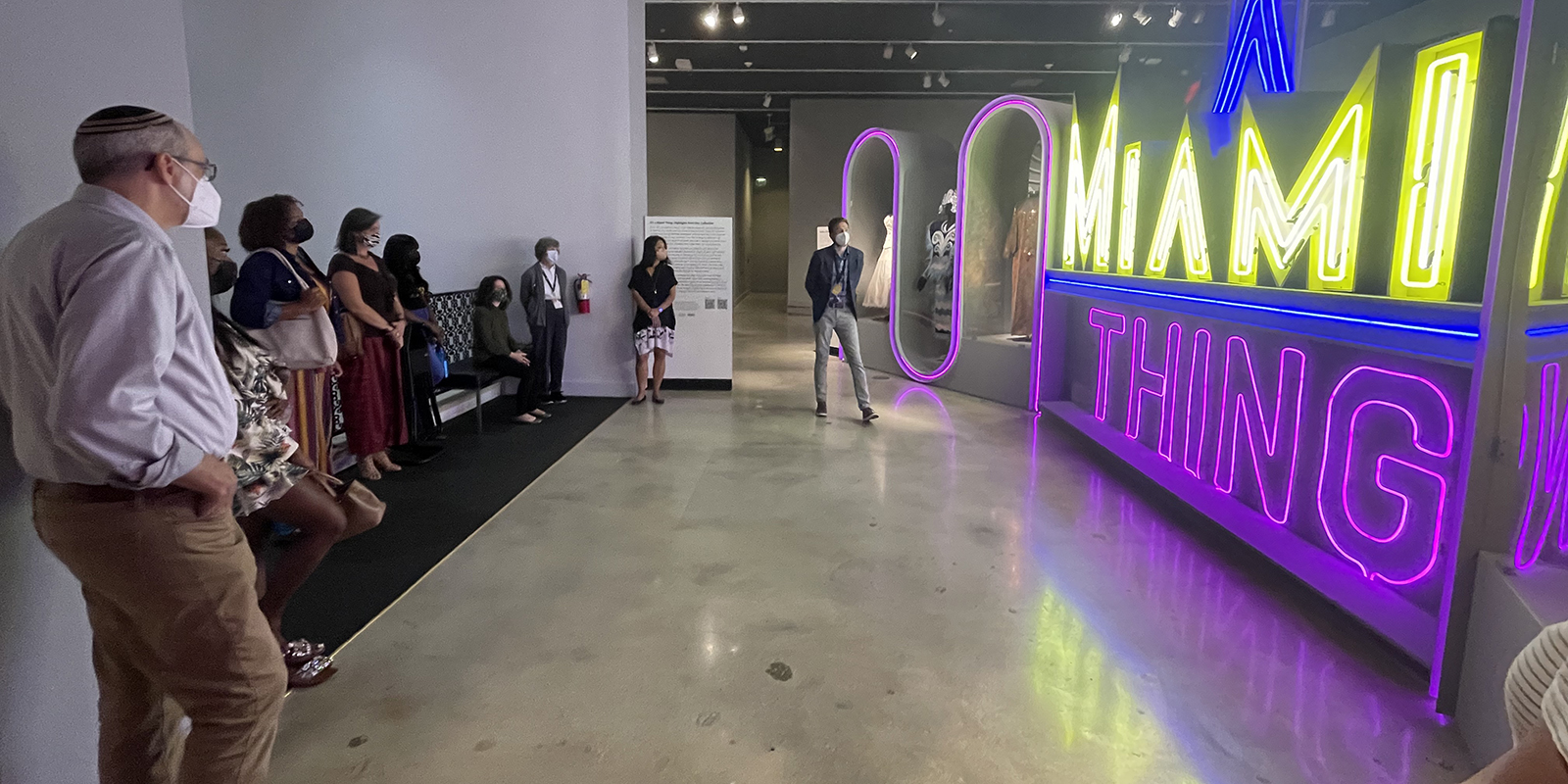Miami is one of the most important cities in the United States and the Americas. Yet, its history, culture, politics, and overall meaning are largely caricatured through myth, stigma, and hyperbole, all of which are deeply rooted in the region’s layered past and relationship to colonial processes and empire. The Greater Miami area has been influential, if not centrally embedded, in many of the nation’s most significant and often controversial issues, from determining presidential elections, setting the tone for foreign policy, seeing the growth of mass incarceration, institutionalizing anti-Black violence, reporting and containing outbreaks and disease, recovering from and responding to natural disasters, experiencing the results of climate crises, spurring debates on immigration and detention, and much more.
Although the region and the millions of people who reside in and traverse it every year remain woefully understudied and misunderstood, community and grassroots efforts have long created, fostered, and studied local knowledges that serve as a corrective to this broader national narrative that has marginalized and underscored Miami as a site of significant cultural and intellectual inquiry and impact.
The Wolfsonian Public Humanities Lab (WPHL) at FIU has won a major grant through the National Endowment for the Humanities (NEH) to support and further grow and disperse this local knowledge, in service to our students, staff and faculty, and broader community, through the creation of a new, rigorous Miami Studies Program that is at once critically engaged with the complexities of these histories and experiences and also mindful of the unique skills our diverse student body currently possesses or needs to sharpen to be successful in today’s job market. In naming several Miami Studies Fellows made up of faculty throughout FIU’s many departments, programs, and colleges, this project begins with summer reading groups and monthly workshops in Miami Studies throughout the academic year. All this will culminate in the creation of a series of new courses or modules that are integrated to FIU’s Office of Micro-Credentials housed within the Division of Academic & Student Affairs.
This curriculum’s focus is two-fold. It is content-driven, of course, in its emphasis on the study of history, literature, culture, language, art, architecture, politics, and overall humanistic experience of the diverse people of the Greater Miami area, a minority-majority region whose demographics are mirrored in the student population at FIU. It is also a sustained skills-based program that prepares our students for today’s job market through earned competencies or badges in areas such as digital storytelling, photography, podcasting, op-ed writing, museum curation, and much more.
Learn more in this article written by the WPHL’s Julio Capó, Jr. and Rebecca Friedman published in The Metropole,“Why We Need a Miami School of Urbanism.”
Learn More About Miami Studies

Miami Studies Fellows
Meet our 2022–2023 cohort of Miami Studies Fellows from across FIU’s many colleges, departments, and programs.

Miami Studies Workshops
Check out our schedule of workshops that are introducing a topic connected to Miami’s history, culture, literature, politics, and more.

The Inaugural Miami Studies Symposium
On March 5, 2022, we had our first Miami Studies Symposium, a day-long event held at the Historic Hampton House. (Image credit: Tony Mendoza, “My City Runs on Cafecitos" | tonymendozaart.com)
Programming and events brought to you by

